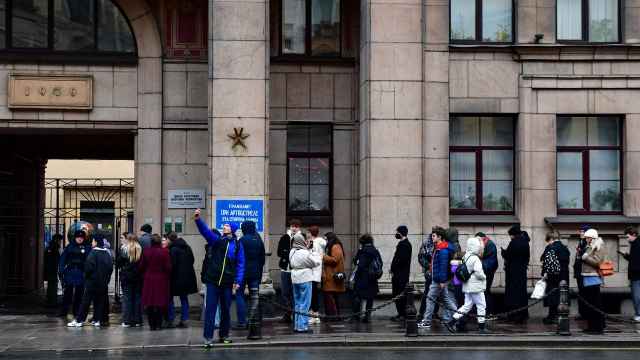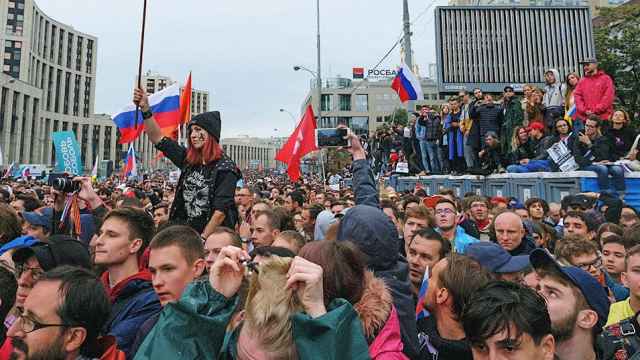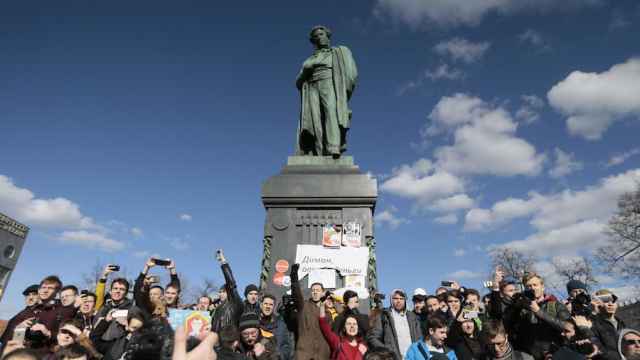A Moscow district court has supported City Hall's decision to revoke permission for a planned opposition rally on Tuesday against controversial new anti-terror legislation.
“It sets a precedent: for the first time, officials managed to revoke a permit they had previously issued,” Leonid Volkov, one of the organizers of the rally, wrote on his blog on Tuesday.
The rally had been approved earlier this month, but Moscow officials later
revoked the permit, citing inaccuracies on the application form.
Volkov and other activists were then rejected after applying for a
second time. The group moved to sue City Hall over the issue last
week, but lost.
“After discussing it with other
organizers, we've come to a decision to cancel the rally today and
re-apply for a permit to protest on Aug. 9,” Volkov wrote.
The
protest is against a controversial series of hard-hitting
anti-terrorism laws passed by the Russian State Duma and signed
by President Vladimir Putin this summer. Ultraconservative United
Russia lawmaker Irina Yarovaya submitted the bills, alongside
Federation Council member Viktor Ozerov.
The changes to
existing legislation will tighten restrictions on Russians suspected
of committing terrorist and extremist activities. The proposals are
wide-ranging and include harsher penalties for inciting or justifying
terrorism online, requiring parcels to be checked for illegal items
and increasing the number of crimes with which children aged between
14 and 17 can be charged.
Communications companies will
also see a crackdown, with the new laws requiring them to monitor the
content of phone calls and messages and to keep them on file for six
months. All messaging apps which use encryption will also be required
to add additional code allowing access to the Russian security
services.
A Message from The Moscow Times:
Dear readers,
We are facing unprecedented challenges. Russia's Prosecutor General's Office has designated The Moscow Times as an "undesirable" organization, criminalizing our work and putting our staff at risk of prosecution. This follows our earlier unjust labeling as a "foreign agent."
These actions are direct attempts to silence independent journalism in Russia. The authorities claim our work "discredits the decisions of the Russian leadership." We see things differently: we strive to provide accurate, unbiased reporting on Russia.
We, the journalists of The Moscow Times, refuse to be silenced. But to continue our work, we need your help.
Your support, no matter how small, makes a world of difference. If you can, please support us monthly starting from just $2. It's quick to set up, and every contribution makes a significant impact.
By supporting The Moscow Times, you're defending open, independent journalism in the face of repression. Thank you for standing with us.
Remind me later.





